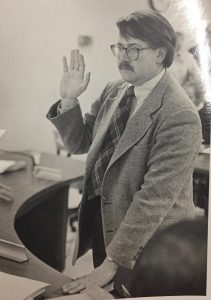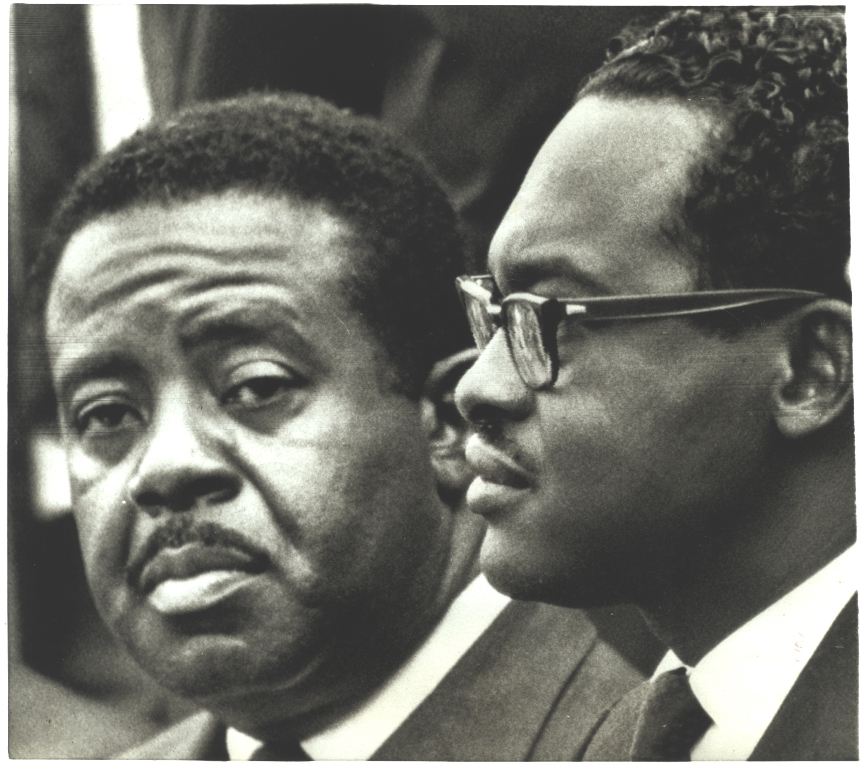“What was hope yesterday morning is now life for me”
 Thanks to “The State of Things” on WUNC (North Carolina Public Radio) for inspiring today’s post with their conversation (also on Twitter) about the experiences of LGBTQ elected officials in North Carolina.
Thanks to “The State of Things” on WUNC (North Carolina Public Radio) for inspiring today’s post with their conversation (also on Twitter) about the experiences of LGBTQ elected officials in North Carolina.
Joe Herzenberg was the first openly gay elected official in North Carolina in 1987. He served on the Chapel Hill Town Council until 1993, when it was revealed that he had not paid state income tax for the previous 14 years. His personal and political papers are held at the Southern Historical Collection (#5367); in addition to correspondence and photographs, the collection includes around 80 diaries written between 1954 to 2006.
His diary from when he was elected in the fall of 1987 (excerpts and images of which are included below) shows the excitement, emotional strain, and tedium of campaigning. Most entries include routine logs about his meals, reading list, and people he saw. Notes about significant personal and political events are written as casually as the mundane, making them both easy to overlook and all the more wonderful when found.



 On this date, forty four years ago, President Lyndon B. Johnson signed into law the “National Voting Rights Act of 1965.” The Act was intended to enforce the fifteenth amendment to the U.S. Constitution. It did so by outlawing disfranchisement practices adopted in many southern states after the Civil War, including literacy tests. Amazingly, the 1965 Act was ratified some 95 years after the fifteenth amendment was signed into law.
On this date, forty four years ago, President Lyndon B. Johnson signed into law the “National Voting Rights Act of 1965.” The Act was intended to enforce the fifteenth amendment to the U.S. Constitution. It did so by outlawing disfranchisement practices adopted in many southern states after the Civil War, including literacy tests. Amazingly, the 1965 Act was ratified some 95 years after the fifteenth amendment was signed into law.